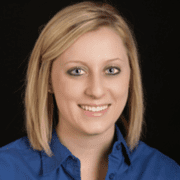Why I chose Applied Behavior Analysis Indiana
 By Angela Vargas, M.S., BCBA
By Angela Vargas, M.S., BCBA
Like most other kids, I went through my list of what I wanted to be when I grew up: a lawyer (…too boring), a law and order SVU detective (…too scary), a wedding planner (…I probably wouldn’t be much good at that). This all changed when I learned that my younger cousin was diagnosed with autism. Initially, it didn’t affect me much. He lived in Colombia and my family had already moved to the United States by then. It was only a label. Then, my cousin’s family came to Wisconsin for a visit. Although he was only about 3 years old, I noticed slight differences in the way he interacted with others. “This must be the autism,” I thought.
As I got older, I heard my parents talking about the different hardships my cousin and his family faced in Colombia; limited resources and knowledge about autism being the two most prominent ones. My aunt and uncle tried to find a logical reason behind the diagnosis. Was it the Coke they gave him to drink when he was a baby? Whose side of the family did it come from? How was his birth different than that of his brother’s? All of these questions, left unanswered, only increased the familial tension. Finally, my aunt decided she would get her certificate in ABA at the University of North Texas so that she could be better informed about autism and hopefully guide my cousin’s treatment. Additionally, my cousin would make several trips to Florida to receive the needed therapy.
As it may come to no surprise, I ultimately decided that I wanted to pursue a career in the field of autism. After doing some research and talking to those in the field, I was given two recommendations: become a behavior analyst or a special education teacher. “Behavior analyst it is!” I thought, and I haven’t looked back since. Choosing to become a BCBA, while on a whim, was the best decision I have ever made. I have a profession, which I not only love, but one that constantly challenges me. Very few individuals can say that they are excited to get up and go to work every day; I am fortunate to be one of those who can. Each learner teaches me something different about life and resilience. Every milestone met, no matter how big or small, is groundbreaking. We all have a reason for pursuing a career in this field. Many of us have likely been affected by autism personally. Each and every time I work with a new learner, my cousin comes to mind. He may not have received the needed services. His family may not have been provided with the necessary support and information. He may not have had access to a service provider like LSC, something unheard of in Colombia. Luckily, I have the opportunity to be sure that his story is one never told by any of the families I work with. For this, I am eternally grateful.
Angela Vargas is a program manager at Little Star Center.
